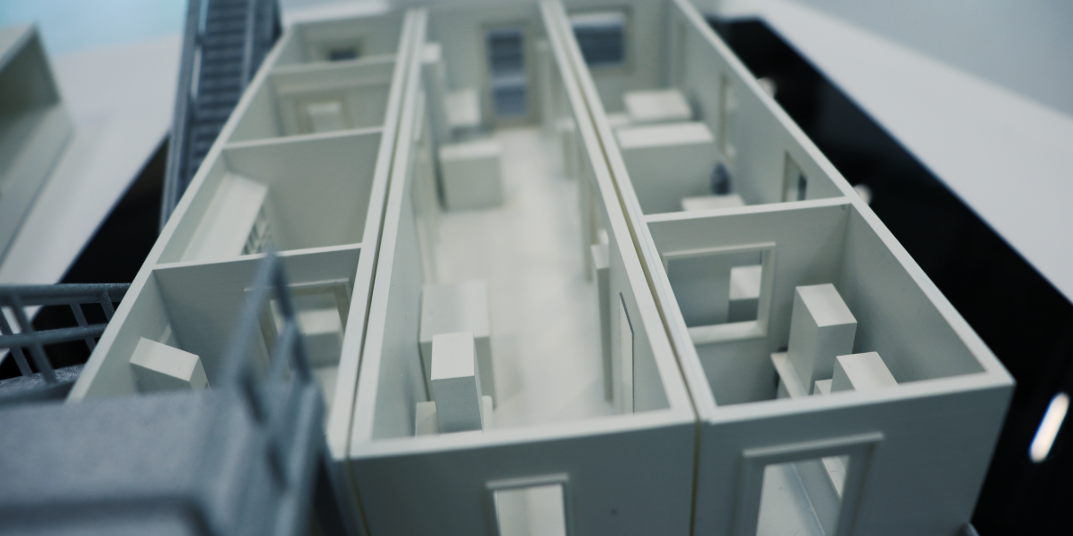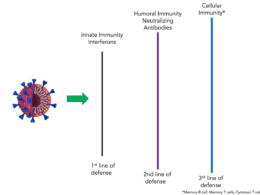Fortune
by DAVID MEYER
February 16, 2022
BioNTech, Pfizer’s COVID-19 vaccine partner, has unveiled a modular plant for manufacturing doses of its mRNA vaccine in Africa, where they would be sold at a not-for-profit price.
The system is based on a series of containers — called BioNTainers, naturally — that can be assembled into facilities for manufacturing and formulating the vaccine substance, which would then be packaged into doses (the “fill and finish” stage, in pharma jargon) by local partners.
BioNTech said at the Wednesday unveiling that it expects to ship the BioNTainers to Rwanda and Senegal, and perhaps South Africa too, in the second half of this year. The fill-and-finish side would likely take place in South Africa and Ghana. The Ghanaian, Senegalese and Rwandan presidents attended the event in Marburg, Germany, where BioNTech recently opened a major new manufacturing facility.
“I am grateful for the support of the great leaders and experts who joined us today,” said BioNTech CEO Uğur Şahin. “It is an honor to work with them to make a difference and to support sustainable vaccine access, establishing regional manufacturing facilities in Africa — with the people on the African continent. I am optimistic that the next time we meet in front of BioNTainers, it will not be in Europe, but in Africa.”
“We are looking forward to working with BioNTech to install the modular production system for mRNA vaccine manufacturing in Dakar in the coming months,” said Macky Sall, President of both Senegal and the African Union.
Equitable vaccine access
German Chancellor Olaf Scholz described the unveiling as “a big step forward” towards more equitable vaccine access — just 11.7% of Africa’s population is fully vaccinated, and just 0.7% boosted — while European Commission President Ursula von der Leyen hailed the advent of “mRNA vaccines made in Africa, for Africa, with world-class technology.”
The EU has pledged €1 billion ($1.14 billion) to expand vaccine manufacturing and access in Africa.
However, it has also refused to back proposals that would allow for a temporary relaxation of intellectual property rules, so vaccine manufacturers in developing countries can use the established technology to make generic versions.
The BioNTainer concept could go some way toward solving the issue of independent production. Although BioNTech will initially staff the modular plants itself, it said the idea is to “prepare for the transfer of know-how to local partners to enable independent operation.”
BioNTech chief operating officer Sierk Poetting said in a press conference that it would likely take two to three years before full knowledge transfers were completed.
The company also noted that the Pfizer-BioNTech COVID-19 vaccine was only one example of what could be made in the containers — it’s also working on malaria and tuberculosis vaccines that would address major scourges of the African continent.
“COVID-19 might not be relevant in five, six, seven years, but the manufacturing technology will be relevant because we know that mRNA is a new drug class that is suitable for different types of vaccines,” said Şahin in the press conference.
The BioNTech CEO also said his company does not yet have economic goals for its BioNTainer project, and was for now focused on developing and producing doses on a non-profit basis.
World Health Organization (WHO) head Tedros Adhanom Ghebreyesus also attended Wednesday’s event, at which he said the goal of equitable vaccine access could only be achieved “through genuine cooperation on local vaccine development, production, distribution and uptake, through greater diversity of platforms.”
Behind-the-scenes lobbying
However, Tedros also gave a pointed nod to efforts by the WHO and South African scientists to develop an mRNA-based vaccine without the help of the big western companies, who have so far refused to cooperate.
The Cape Town-based biotech Afrigen has made a vaccine that is loosely based on Moderna’s, but that won’t be available for use within the next few years unless Moderna or another mRNA vaccine maker helps out with certain key details that would enable a faster scale-up.
According to a British Medical Journal report last week, a consultancy called the kENUP Foundation — which BioNTech has retained, and which coordinated Wednesday’s BioNTainer event — lobbied South African officials in an attempt to stop the project.
The firm said work on the new vaccine would damage Moderna and the South African companies participating in the scheme, and told officials “the sustainability outlook for this project of the WHO Vaccine Technology Transfer Hub is not favorable” because Moderna had only promised to avoid enforcing its patents during the pandemic.
“We welcome BioNTech’s initiative to increase vaccine production in Africa, as a complement to WHO’s mRNA technology transfer hub in South Africa and its network of ‘spokes’ around the world,” Tedros said Wednesday.
Asked about the kENUP report, In the press conference, Şahin said in the press conference that he could not comment on behalf of the consultancy. He also deflected a question about whether BioNTech would join Moderna in suspending enforcement of its patents during the pandemic.
“We can just state that at the moment several projects with the same goal are underway and we welcome any other projects following the same goals,” he said.
This article was updated on Feb. 16 to include quotes from the press conference and to clarify the timescale for the containers’ shipping.
Originally published at https://fortune.comUgur Sahin – Professor for Translational Oncology and Immunology – University Medical Center Mainz…
View Ugur Sahin’s profile on LinkedIn, the world’s largest professional community. Ugur has 7 jobs listed on their…www.linkedin.com
Linkedin
Ugur Sahin
Professor for Translational Oncology and Immunology at University Medical Center Mainz
CEO of BioNTech
Watch the video below for more details.
https://www.linkedin.com/in/ugur-sahin-65905917/recent-activity/
How can we help make mRNA vaccine production accessible around the world?
This was the question we asked ourselves after our mRNA-based #COVID19 vaccine was approved in December 2020 — a novel technology we have been researching for more than two decades. The new challenge that immediately arose from its development was the limited global manufacturing capacities for this new drug class.
As there was no evident solution to this problem, we decided to develop one. The solution is 12 meters long, 2.4 meters tall, and six of them make up what we call a #BioNTainer. They are designed as a turnkey mRNA manufacturing facility based on a modular ISO-sized container solution, allowing the production of mRNA-based vaccines in bulk. It is a standardized concept that is replicable, and its set-up as a container allows us to ship them by truck, ship or plane, to all continents.
We have presented the BioNTainer today at a high-level meeting in Marburg, where its prototype has been developed over the past 14 months. Our new site in Marburg will maintain an innovation center to continuously enhance the manufacturing concept. If new technical, digital or automation solutions need to be tested and implemented, we will do this in our BioNTainers in Marburg and roll it out afterwards. The BioNTainer is not only suited to produce our #COVID19 vaccine, but any mRNA-based vaccines or therapies — including those targeting the needs of people in regions with endemic infectious diseases, such as potential future vaccines against malaria and tuberculosis.
We are working with our partners at World Health Organization, Africa Centres for Disease Control and Prevention (Africa CDC), the Africa Medicine Agency and the European Commission on this solution with the goal of establishing an end-to-end production network for mRNA-based vaccines in Africa. I am grateful to our African partners who are supporting the development of the necessary regulatory framework and infrastructure to bring the solution to their respective destinations in Rwanda, Senegal and possibly South Africa.
A big thank you goes out to my colleagues in Mainz and Marburg and to all collaboration partners who have been working tirelessly in the past months to help improve access to healthcare globally.








